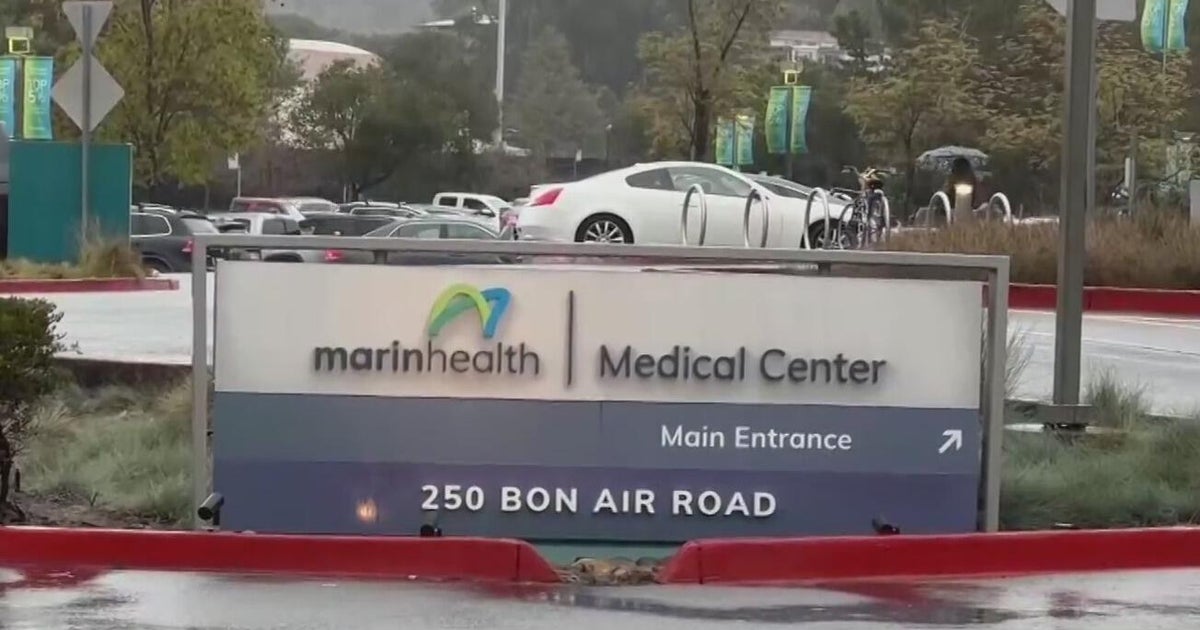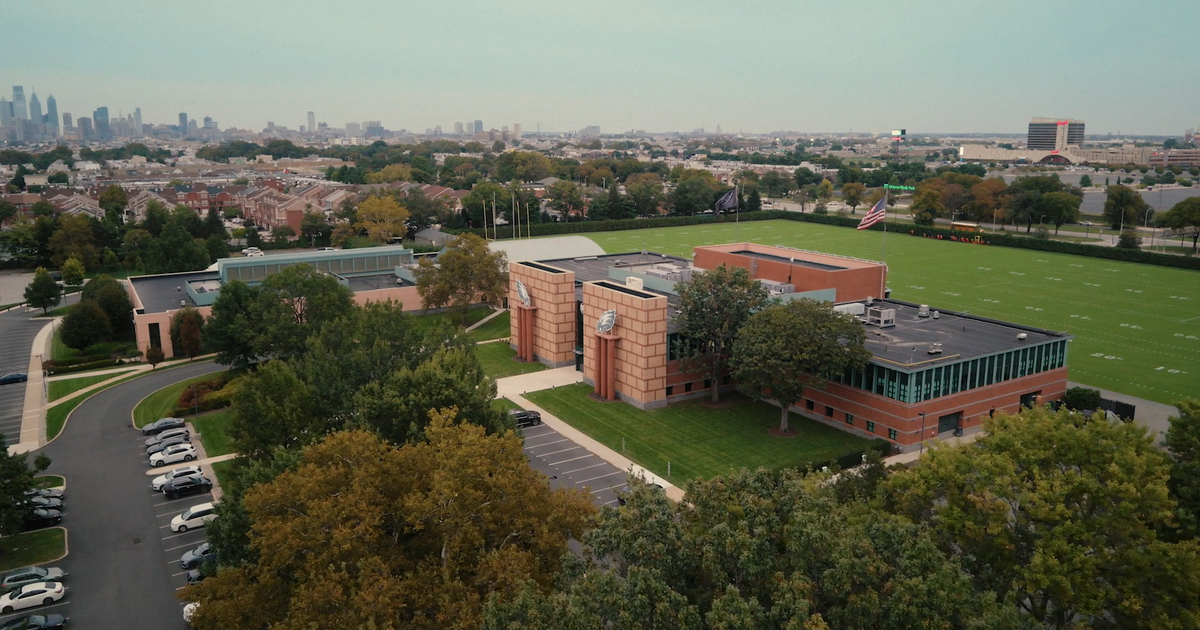Baffoe: Mike Glennon & The Realest Revenge Game
By Tim Baffoe--
(CBS) To the basest of our natures, there are few dishes better than revenge. Served cold or otherwise. We love the prospect of sweet satisfaction in making those who have wronged us feel the pain they brought upon us, despite logic dictating that our personal situations aren't necessarily improved via vengeance. This is almost purely a prospect, though, and more often than not turns out to be the emptiest of calories for the ego.
Scientists have found that achieving what we think is revenge usually doesn't bring the bang for its buck. From the Association for Psychological Science in 2011:
In the past few years, psychological scientists have discovered many ways in which the practice of revenge fails to fulfill its sweet expectations. Behavioral scientists have observed that instead of quenching hostility, revenge can prolong the unpleasantness of the original offense and that merely bringing harm upon an offender is not enough to satisfy a person's vengeful spirit. They have also found that instead of delivering justice, revenge often creates only a cycle of retaliation, in part because one person's moral equilibrium rarely aligns with another's. The upshot of these insights is a better sense of why the pursuit of revenge has persisted through the ages, despite tasting a lot more sour than advertised.
The study of abnormal human behavior obviously then brings us to Bears quarterback Mike Glennon. On Sunday, he will return to Tampa Bay, where he spent all of his previous NFL years, to take on the Buccaneers. As sports conversations are wont to do, the otherwise unremarkable pro football matchup becomes a "revenge game" involving Glennon, whether posed requisitely by some local media or tongue-in-cheek (which readers here know I would never do).
It's a particularly silly concept in this case, because Glennon was never much of a factor for the Bucs in his time with them. But anything that can mimic the human condition in a gladiator sport gets touched on. Call it the Rinaldi Factor, if you will. It's a nugget of a something that makes it more than a football game.
"Obviously, it counts the same, but it's against the place I was for the last four years," Glennon said Wednesday. "A lot of friends, familiar faces on the other side. So I think it's human nature to be looking forward to this a little bit more, just because I'm going against my former team."
Are you frothing as much as I am and Glennon clearly is with a hankering for the iron taste of blood? He spoke of human nature, though, which is apt. We expect athletes to "want it more" when playing a former team, losing ourselves vicariously in the same sort of satisfaction we think we'll get by instigating a social media fight between two people more famous than us. We like watching people inflict pain on others, particularly if the others aren't especially likable.
In this case, Jameis Winston, who exudes a confidence matched only by other alleged sexual predators, is a perfect foil then for the awkward, shucksy, far less talented and far less despicable Glennon. Anyone not a Bucs fan has incentive for the Bears to pull an upset then if for only sadistic purposes. This would be the "comparative suffering" theory of why we like revenge, "the idea that simply seeing an offender suffer restores an emotional balance to the universe." Winston losing games won't do that, no matter how good it might make me feel in the moment. It's not my revenge, though.
Researchers "have often found that people make powerful mistakes when predicting how they will feel about something in the future," according to the Association for Psychological Science. "Perhaps revenge is sweet, or perhaps the words of Francis Bacon are more accurate: 'A man that studieth revenge, keeps his own wounds green, which otherwise would heal, and do well,'"
And it's this game that becomes the very example of the hollowness of revenge.
If you're still on the "Hey, you never know -- the Bears could do some damage this season" train -- and entering Week 2 some are -- the added Glennon storyline to this game is gravy for the sports psyche. Our brains do buzz and pop in anticipation of revenge, even getting a bit high on the idea. That APS piece mentions that Swiss researchers in 2004 found that when subjects in an experiment were given an option to exact vengeance on another subject or not, choosing the former "caused a rush of neural activity in the caudate nucleus, an area of the brain known to process rewards (in previous work, the caudate has delighted in cocaine and nicotine use)."
The idea of Mike Glennon, giraffe quarterback, thwarting a better team that no longer needed his services makes for great pregame TV feature pieces and pointless sideline reporting bits -- which are the media equivalent of terrible drugs.
Let's say the Bears pull the upset, though, which could totally happen because the NFL is silly each week. They're no more talented a team next Monday than they are today (and the weekly attrition of football means they're probably less so come Monday). We are still left with a Bears team that we kinda already have a verdict on.
APS notes another study in which subjects were given the opportunity to exact revenge on fellow participants. The vengeful, called "punishers" for this study, felt worse than the subject who wasn't given power to punish at all but were still asked to comment on how they'd feel if they could.
Punishers even felt worse than non-punishers, despite getting the chance to take their revenge. Ten minutes after the game, punishers continued to brood on the free rider significantly more than the others did — an 'increased rumination' that prevented them from moving on, the researchers surmised. All told, Carlsmith and company concluded in a 2008 issue of the Journal of Personality and Social Psychology, people erroneously believe revenge will make them feel better and help them gain closure, when in actuality punishers ruminate on their deed and feel worse than those who cannot avenge a wrong.
Glennon's potential revenge -- again, a stretch for a storyline if there can be such a thing in the NFL -- has a cheap narcotic quality for the selfish consumer of Sunday's game but should it be successful would leave the consumer like anyone else when the drug wears off.
Which for a Bears fan should be quite quickly in the ensuing games. Games that still involve an unstimulating Glennon for the time being. Suddenly psychology is right again. And revenge feels even less satisfactory.
Tim Baffoe is a columnist for CBSChicago.com. Follow Tim on Twitter @TimBaffoe. The views expressed on this page are those of the author, not CBS Local Chicago or our affiliated television and radio stations.







